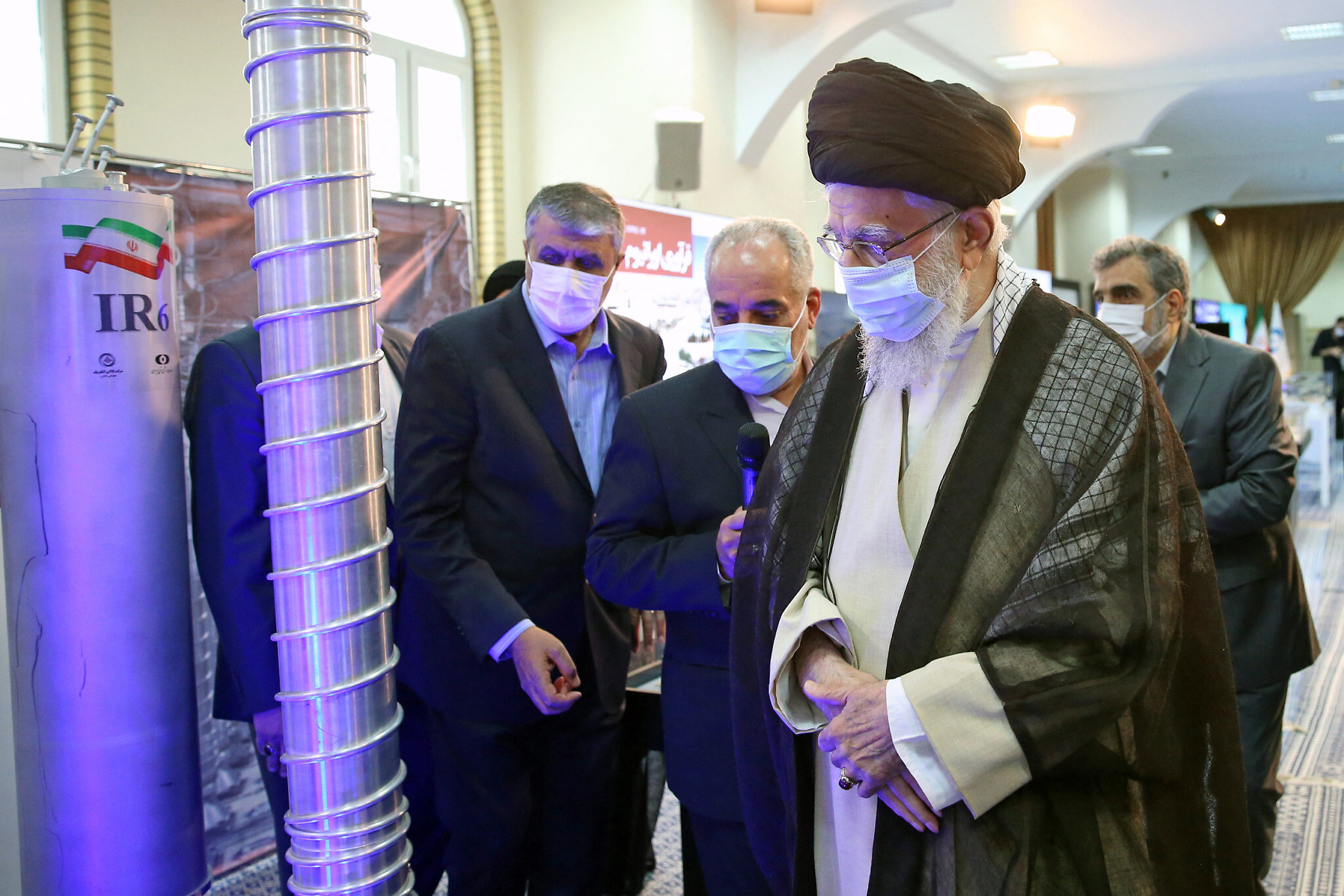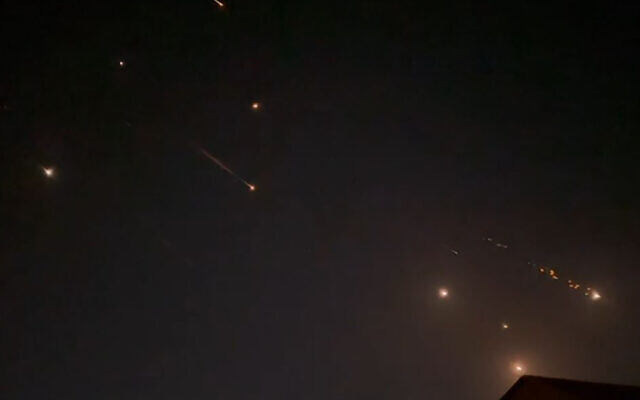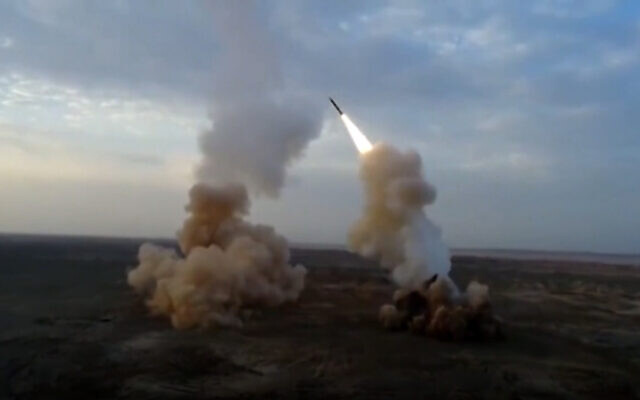



Iran could review its “nuclear doctrine” following Israeli threats to strike the country, a senior Islamic Revolutionary Guard Corps commander said on Thursday, as the world braces for an Israeli response to Tehran’s unprecedented April 13 drone and missile attack on it.
Tehran has always insisted its nuclear program was strictly for peaceful purposes, a claim Israel and much of the Western world doubt.
“The threats of the Zionist regime against Iran’s nuclear facilities make it possible to review our nuclear doctrine and deviate from our previous considerations,” Ahmad Haghtalab, the Guards commander in charge of nuclear security, was quoted as saying by the semi-official Tasnim news agency.
Iran’s Supreme Leader, Ayatollah Ali Khamenei, has the last say on Tehran’s nuclear program, which the West suspects has military purposes.
In 2021, Iran’s then-intelligence minister said Western pressure could push Tehran to seek nuclear weapons, the development of which Khamenei ostensibly banned in a fatwa, or religious decree, in the early 2000s.
“Building and stockpiling nuclear bombs is wrong and using it is haram [religiously forbidden]… Although we have nuclear technology, Iran has firmly avoided it,” Khamenei reiterated in 2019.
However, Rafael Grossi, the head of the International Atomic Energy Agency, said in February that Iran continued to enrich uranium at rates up to 60 percent purity, which is far beyond the needs for commercial nuclear use and is a short technical step away from weapons-grade 90%.
Haghtalab’s statement comes as IDF Chief of Staff Herzi Halevi has vowed a response to the Iranian aerial attack, which was mostly intercepted, while world leaders have urged de-escalation.
Prime Minister Benjamin Netanyahu said Israel reserves “the right to protect itself” following the Iranian attack. Tehran says it was carried out in response to a suspected Israeli strike on its embassy compound in Damascus earlier this month that killed several members of the Revolutionary Guards, including two generals.
Israeli officials have not said when or where the country would retaliate, but Haghtalab warned that Iran would “definitely” reciprocate any attack on nuclear sites.
“If the Zionist regime wants to take action against our nuclear centers and facilities, it will definitely and surely face our reaction,” the official Iranian news agency IRNA quoted Haghtalab as saying.
“For the counterattack, the nuclear facilities of the [Israeli] regime will be targeted and operated upon with advanced weaponry.”
According to Haghtalab, Iran has “identified” Israeli nuclear centers and holds “necessary information of all targets.”
Israel is widely believed to have nuclear weapons, but has never admitted so.
“Hands are on the trigger to fire powerful missiles for the total destruction of determined targets,” the Iranian general said.
On Monday, Grossi said Iran had closed its nuclear facilities “for security reasons” on the day of its attack on Israel.
Amirali Hajizadeh, commander of the Revolutionary Guards’ aerospace unit that led the attack on Israel, said on Thursday that Iran had only used “old weapons and minimal power” for it.
He argued Iran had “overcome the maximum capacity” of Israel and its allies “with minimal power.”
Iran launched more than 300 drones and missiles at Israel overnight from Saturday into Sunday morning in its first direct attack on Israeli territory.
Israel and its allies shot down the vast majority of the drones and missiles and the attack caused only one injury, but concerns about a potential Israeli reprisal have nevertheless stoked fears of all-out regional war.



